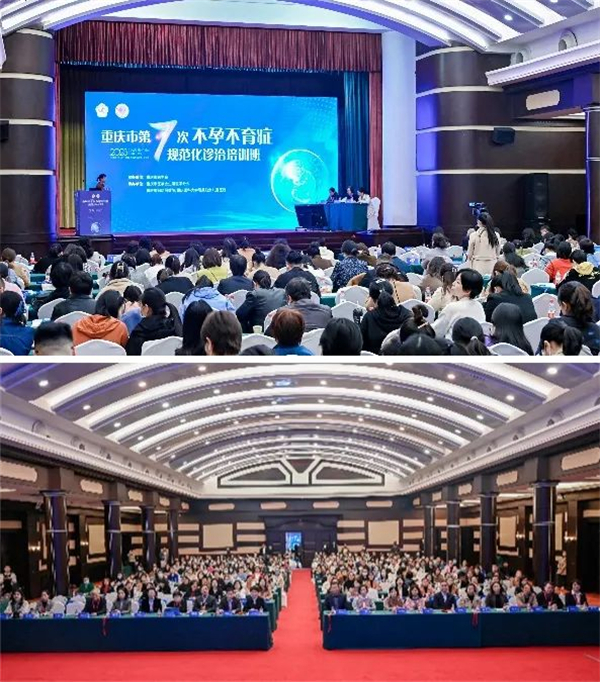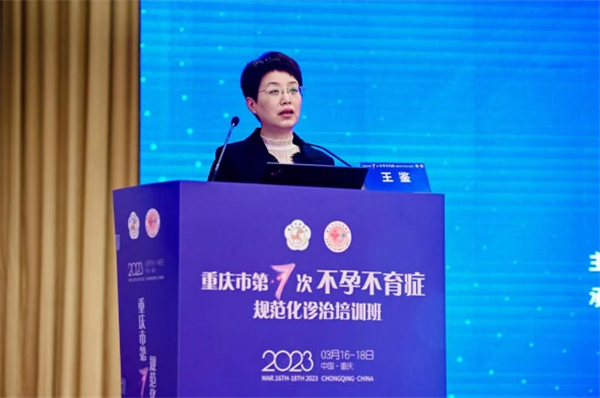Training session on infertility held in Chongqing

Chongqing's 7th training session on the standardized diagnosis and treatment of infertility is held on March 17-18. [Photo/CQHCWC]
Sponsored by the Chongqing Medical Association, Chongqing's 7th training session on the standardized diagnosis and treatment of infertility was successfully held on March 17-18 in Southwest China's Chongqing.
The session was organized by the association's Reproductive Medicine Branch and the Chongqing Health Center for Women and Children (Women and Children's Hospital of Chongqing Medical University), or CQHCWC.
Nearly 400 medical personnel engaged in the diagnosis and treatment of common reproductive endocrine diseases and infertility participated in the event. All attendees were from maternal and child health care institutions and medical institutions in various provinces and municipalities across the country.
Among the experts who attended the opening ceremony were Professor Huang Guoning, director of the Reproductive Medicine Branch of the Chinese Medical Association; Professor Ye Hong, director of the Reproductive Medicine Branch of the Chongqing Medical Association; Professor Deng Chengyan from Peking Union Medical College Hospital; Professor Shen Huan from Peking University People's Hospital; Wang Jian, secretary of the Party committee of the CQHCWC; and Qi Hongbo, president of the CQHCWC.

Wang Jian addresses the guests at the opening ceremony. [Photo/CQHCWC]
Both Wang Jian and Ye Hong addressed the opening ceremony.
Launched by the CQHCWC, the training session aimed to further accelerate the construction of infertility clinics, standardize infertility diagnosis and treatment processes, and improve the service capabilities of reproductive specialists in Chongqing.
Seven well-known experts from outside Chongqing and 14 experts from within the city were invited to give lectures, with topics covering the standardized diagnosis and treatment of female infertility, the standardized diagnosis and treatment of male infertility, the standardized analysis of semen, and nursing models for assisted pregnancy patients.
The training was conducted to solve any confusion or weak links that medical professionals at all levels may have in diagnosing and treating infertility. It also further regulated infertility diagnosis and treatment processes in the city.

 CQHCWC: Nurture healthier futures for children
CQHCWC: Nurture healthier futures for children How to help children develop healthy eating habits
How to help children develop healthy eating habits Wechat
Wechat Weibo
Weibo